#eco denim
Explore tagged Tumblr posts
Text
Cropped Jean Jacket from Old Denim Sewing
In this post, you will learn how to sew cropped jean jacket with super easy self drafting tutorial. Are you looking to add a unique touch to your wardrobe without breaking the bank? Dive into the world of sustainable fashion with my easy-to-follow sewing tutorial that transforms your old jeans into a stylish cropped jean jacket. Perfect for beginners, this guide will walk you through simple…
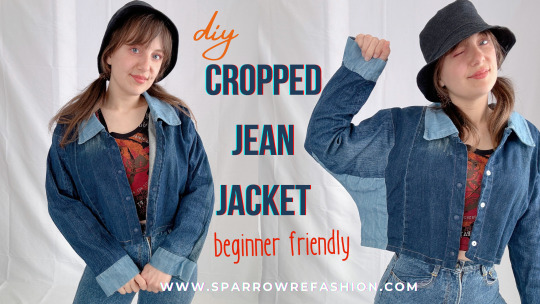
View On WordPress
#Beginner Sewing Projects#Cropped Jean Jacket#denim crafts#DIY Denim Upcycle#eco-friendly clothing#fashion DIY#pattern drafting#Recycled Fashion#sewing tutorial#sustainable fashion
5 notes
·
View notes
Text
DOLLAR TREE CHANGED THE BLUE COTTON YARN. ITS A DIFFERENT BLUE
#theres a different dollar tree by my work thst im checking tomorrow but if they dont have 8 or so skeins of teal#then im outta luck#i might actually have to wait for a micheals sale/coupon and get the eco cotton yarn from them all at once#i could maybe change to the denim(?) blue#website says denim but it looked like a dark turquoise color in store#anyway i was so mad im not working on the mesh any more until i know what color im working with
3 notes
·
View notes
Text

Upcycled Denim Bags: Dwij
Shop our exclusive collection of upcycled denim bags and make a sustainable fashion statement. Each bag is handcrafted from recycled materials, blending style with eco-consciousness. Buy Now and carry sustainability with you!
#denim bags#upcycled denim bags#bags made out of old jeans#best eco friendly bags#sustainable gift ideas#upcycled bags#sustainable denim products
0 notes
Text
Finding the Right Manufacturer Near Me in Canada: A Guide for Entrepreneurs and Designers
Finding a reliable manufacturer for your clothing line is one of the most critical steps in bringing your designs to life. If you're in Canada, you might have searched for a manufacturer near me to find a local partner who can help you create your products. Fortunately, Canada is home to a range of reputable apparel manufacturers that cater to diverse clothing categories. Whether you're looking to produce custom streetwear, luxury apparel, or eco-conscious clothing, there are numerous options available close to you.
Why Should You Look for a Manufacturer Near Me?
The idea of working with a local manufacturer in Canada comes with several advantages that can significantly improve the success of your clothing line:
1. Reduced Shipping Times and Costs
Local manufacturing helps to eliminate long shipping times and expensive international freight charges. You’ll benefit from shorter lead times, meaning your clothing line can be produced and distributed faster, allowing you to reach your customers with greater efficiency.
2. Increased Communication and Collaboration
Having a local manufacturer allows for easier communication, with the opportunity to schedule face-to-face meetings or quick check-ins over the phone. This close collaboration ensures your designs are realized exactly how you envision them, with minimal miscommunication or misunderstandings.
3. Supporting Local Businesses and Economy
By choosing a manufacturer near you, you help support local Canadian businesses and contribute to the national economy. You’ll also be able to make a positive impact in your community, which can be an attractive factor to potential customers who value locally made products.
4. More Flexibility in Production
Local manufacturers offer more flexibility, whether you’re looking for small-batch production or large-scale runs. This is particularly important if you are a startup or if your designs are seasonal, requiring frequent changes or adjustments.
Types of Apparel Manufacturers Available in Canada
When you search for a manufacturer near me in Canada, you'll find various options tailored to different apparel needs. Let’s take a look at some of the most popular types of manufacturers you can consider:
Custom Streetwear Manufacturers
Streetwear is one of the most popular fashion categories, with designs that reflect urban culture and individuality. A custom streetwear manufacturer near you can help you create bold, unique designs for t-shirts, hoodies, sweatshirts, and more. Whether you're creating custom graphics or embroidered designs, Canadian manufacturers specializing in streetwear are experienced in producing high-quality, trendsetting clothing.
Luxury Clothing Manufacturers
If your brand aims to create high-end fashion, working with a luxury clothing manufacturer in Canada is essential. These manufacturers specialize in the production of premium garments, using top-quality fabrics, specialized techniques, and attention to detail. From tailored suits to fine eveningwear, Canadian luxury manufacturers can provide craftsmanship that ensures your brand’s exclusivity and sophistication.
Activewear Manufacturers
With the rise in fitness and wellness trends, activewear is a booming market. A local activewear manufacturer can help you create functional, comfortable, and stylish workout clothes for both men and women. Whether you're producing leggings, sports bras, or athleisure wear, Canadian activewear manufacturers are equipped with the right technology and materials to meet the demands of this growing sector.
Sustainable and Ethical Apparel Manufacturers
Consumers are becoming increasingly aware of the impact fashion has on the environment and society. As such, many brands are turning to sustainable apparel manufacturers to produce eco-friendly garments. Canada has a growing network of ethical fashion manufacturers, offering options such as organic fabrics, eco-friendly dyes, and fair-trade production practices. If your brand is focused on sustainability, working with a local manufacturer that prioritizes ethical standards can boost your brand’s reputation and appeal to conscious shoppers.
Plus-Size Clothing Manufacturers
The demand for inclusive fashion is on the rise, and many Canadian manufacturers specialize in plus-size clothing. These manufacturers have the expertise to create flattering, comfortable, and stylish garments that cater to a diverse range of body types. Whether you’re launching a line of plus-size fashion for men or women, Canadian manufacturers can help you create designs that make all customers feel confident and empowered.
Children's Clothing Manufacturers
When designing children’s clothing, it’s essential to partner with a manufacturer who understands the importance of safety, comfort, and durability. Children's clothing manufacturers in Canada focus on creating clothing for all age groups, from babies to teenagers. They ensure that all garments meet safety regulations and use gentle fabrics that are comfortable for young skin, while still offering the style parents are looking for.
How to Find the Right Manufacturer Near Me in Canada
Now that you understand the benefits of working with a local manufacturer, the next step is to find the right partner for your brand. Here are a few steps to guide you:
1. Do Your Research
Start by searching online and reviewing manufacturers' portfolios. Read customer reviews, explore their past projects, and get in touch with them to discuss your needs. This research will help you narrow down options that align with your brand’s values and production requirements.
2. Request Samples
Once you've shortlisted potential manufacturers, ask for samples of their previous work to assess the quality of their garments. This will help you gauge their manufacturing capabilities and ensure that their standards meet your expectations.
3. Discuss Your Specific Needs
Reach out to manufacturers and discuss the specifics of your project. Whether it’s about custom t-shirts, luxury clothing, or eco-friendly activewear, make sure the manufacturer understands your design vision, fabric preferences, and desired quantity.
4. Visit the Facility
If possible, arrange a visit to the manufacturer's facility. This is a great opportunity to meet the team, inspect their production processes, and see firsthand how they work. A personal visit will also help build trust and strengthen the relationship between your brand and the manufacturer.
5. Evaluate Costs and Lead Times
Lastly, make sure to evaluate the cost and timeline for your order. Ensure that the manufacturer can deliver the products within your desired time frame and that the pricing fits within your budget, especially if you are just starting your brand.
Conclusion
Choosing the right manufacturer near me in Canada can significantly impact your brand’s success. By selecting a local manufacturer, you gain access to faster production times, better communication, and the opportunity to support local businesses. Whether you’re producing custom streetwear, luxury clothing, or sustainable apparel, Canada offers a diverse range of manufacturers to meet your needs.
#Clothing mafacturers near me in Canada#Clothing Manufacturers#Custom Apparel Canada#Sustainable Fashion Canada#Plus Size Clothing Canada#Look for a Manufacturer Near Me#Streetwear Manufacturers Canada#Activewear Manufacturers Canada#Ethical Clothing Manufacturers#Canadian Clothing Production#Luxury Apparel Manufacturers#Kids Clothing Manufacturers Canada#Swimwear Manufacturers Canada#Start-Up Clothing Manufacturers#Low MOQ Manufacturers#T-shirt Manufacturers Canada#Shirt Manufacturers Canada#Eco-Friendly Clothing Manufacturers#Custom Clothing Canada#Apparel Manufacturers Canada#Fashion Manufacturers Canada#Private Label Clothing Canada#Apparel Sourcing Canada#Ethical Apparel Canada#Jeans Manufacturers in Canada#Denim Clothing Manuafacturers in Canada
1 note
·
View note
Text
What is Sustainable Clothing? | Eco-Friendly & Ethical Fashion Explained

What is Sustainable Clothing?
Sustainable clothing refers to garments that are designed, produced, and distributed with minimal negative impact on the environment, society, and economy. It is an integral part of the sustainable fashion movement, which aims to transform the traditional fashion industry into one that prioritises longevity, ethical labour practices, and environmental stewardship.
At its core, sustainable clothing is about more than just the final product. It encompasses every stage of a garment's lifecycle, from sourcing raw materials to production, transportation, and eventual disposal. This holistic approach ensures that clothing not only meets the needs of the present but also protects the resources and well-being of future generations.
The Principles of Sustainable Clothing
Sustainable clothing is characterised by three core principles:
Environmental Responsibility Sustainable clothing manufacturers prioritise eco-friendly materials and processes. They use organic or recycled fabrics such as organic cotton, hemp, and recycled polyester, which require fewer resources and cause less harm to the environment. These practices help reduce carbon emissions, conserve water, and minimise waste.
Ethical Production Ethical clothing manufacturers ensure fair wages, safe working conditions, and respect for workers' rights. This approach aims to address the exploitation of labour, which is unfortunately common in fast fashion.
Longevity and Circularity Sustainable fashion emphasises durability and versatility. By designing garments meant to last, these manufacturers encourage consumers to buy fewer items and keep them for longer. Some eco-friendly clothing manufacturers also offer recycling programs to ensure that worn-out clothes are repurposed instead of ending up in landfills.
Why Sustainable Clothing Matters
The fashion industry is one of the largest contributors to global pollution. From excessive water usage in textile production to the disposal of non-biodegradable fabrics, traditional manufacturing practices take a significant toll on the environment. Choosing sustainable ethical clothing manufacturers clothing reduces this impact, as it promotes responsible sourcing and production methods.
Additionally, ethical clothing manufacturers focus on the well-being of workers, ensuring that the people behind your clothes are treated with dignity and respect. This shift towards ethical and eco-friendly practices helps create a fairer global economy.
How to Identify Sustainable Clothing
Check for Certifications Look for certifications like GOTS (Global Organic Textile Standard), Fair Trade, or OEKO-TEX, which indicate that the garment meets specific environmental and ethical standards.
Research the Brand Many sustainable clothing manufacturers are transparent about their processes. Check their websites or product tags for information on materials, labor practices, and sustainability initiatives.
Focus on Quality over Quantity Investing in well-made, durable pieces from eco-friendly clothing manufacturers ensures your wardrobe is both sustainable and stylish.
The Role of Sustainable Clothing Manufacturers
Sustainable clothing manufacturers are pivotal in transforming the fashion industry by prioritising environmental and social responsibility. They use eco-friendly materials like organic cotton, recycled fibres, and plant-based alternatives to minimise environmental impact. Ethical practices, including fair wages and safe working conditions, are central to their operations. By adopting energy-efficient processes, reducing water usage, and managing waste responsibly, they lower the carbon footprint of garment production. Additionally, these manufacturers drive innovation, promote transparency, and encourage circular fashion through recycling and durability-focused designs. Their efforts empower consumers to make conscious choices, fostering a greener, fairer, and more sustainable future for the fashion industry.
How Consumers Can Support Sustainable Fashion
Buy Less, Choose WiselyOpt for high-quality garments that align with sustainable practices.
Support Sustainable BrandsChoose products from eco-friendly clothing manufacturers and spread the word about their efforts.
Recycle or DonateDispose of unwanted clothes responsibly by donating them or participating in recycling programs.
Conclusion
Sustainable clothing is more than a trend—it’s a commitment to a better future. By supporting sustainable, eco-friendly, and ethical clothing manufacturers, we can reduce environmental harm and promote fair practices in the fashion industry. As consumers, every choice we make has the power to create a positive ripple effect. Let’s choose sustainability and pave the way for a greener, fairer world.
#Sustainable clothing manufacturers#eco friendly clothing manufacturers#ethical clothing manufacturers#apparel manufacturers#denim manufacturers#apparel vendors#denim manufacturers in usa#clothing manufacturers
0 notes
Text


Retro three-dimensional puppy embossed denim canvas tote bag crossbody bag.
.
Shop
IG
#fashion#style#shop#bag#bag shop#handbag#shoulder bag#bag brand#canvas bag#eco bag#shopping bag#tote bag#crossbody bag#handbags#designer bag#fashion bag#bag lover#denim bag#jean bag#bag for sale#retro bag
1 note
·
View note
Text















1 note
·
View note
Text
Green Denim for A Sustainable Future
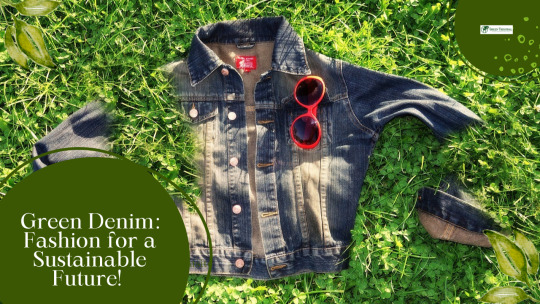
In recent years, sustainability has emerged as a pressing issue across a wide range of industries, and the fashion industry is no exception. As consumers become increasingly aware of the environmental consequences of their choices, there has been a significant surge in the demand for eco-friendly and sustainable clothing options. One particular sector within the fashion industry that has experienced a notable transformation is denim production. With the emergence of green denim, individuals with a passion for fashion can now fully embrace sustainable practices without sacrificing their personal style.
The traditional methods of denim production have long been associated with substantial environmental impact. The excessive water consumption, chemical pollution, and high carbon footprint of conventional denim manufacturing have raised serious concerns among environmentally conscious consumers. However, the rise of green denim has brought about a positive change, offering a promising solution for those seeking sustainable fashion choices.
The increasing popularity of green denim can be attributed to several factors. Firstly, consumers are now more informed and aware of the detrimental effects of traditional denim production on the environment. They are actively seeking alternatives that align with their values and desire for sustainability. As a result, fashion brands and manufacturers have recognized this shift in consumer preferences and have begun to adapt their practices to meet the demand for eco-friendly denim.
Green denim entails a comprehensive approach to denim production, incorporating environmentally friendly practices at every stage of the manufacturing process. From the cultivation of organic cotton to the manufacturing and finishing processes, sustainable techniques are employed to minimize the negative impact on the environment. This holistic approach enables fashion enthusiasts to enjoy denim products that are not only stylish but also ethically and ecologically sound.
One of the key components of green denim production is the use of organic cotton. Unlike conventionally grown cotton, which relies heavily on synthetic fertilizers, pesticides, and genetically modified organisms (GMOs), organic cotton is cultivated without these harmful inputs. By opting for organic cotton, green denim manufacturers reduce water pollution, protect biodiversity, and promote soil health. This shift towards organic cotton cultivation significantly contributes to a more sustainable future for denim production.
Another crucial aspect of green denim is the adoption of natural indigo dyes. Traditionally, denim fabrics were dyed using synthetic indigo, which is not only environmentally harmful but also poses health risks for the workers involved in the dyeing process. In contrast, natural indigo dyes are derived from plants and offer a biodegradable and less toxic alternative. By using natural indigo, green denim manufacturers ensure that the dyeing process is more sustainable and safer for both the environment and the workers.
Moreover, water conservation plays a pivotal role in green denim production. Conventional denim manufacturing processes consume vast amounts of water throughout various stages, such as cotton cultivation, dyeing, and finishing. However, green denim manufacturers have implemented innovative dyeing techniques that minimize water usage without compromising on the quality and appearance of the denim. Techniques like foam dyeing and laser technology significantly reduce water consumption, alleviating water scarcity concerns and reducing the environmental impact of denim production.
Energy efficiency is also a crucial focus in green denim production. Manufacturers are increasingly adopting renewable energy sources and investing in energy-efficient machinery to minimize the carbon footprint associated with denim manufacturing. By reducing energy consumption and transitioning to cleaner energy sources, green denim contributes to mitigating climate change and creating a more sustainable future.
In addition to these sustainable practices, green denim manufacturers prioritize recycling and upcycling denim waste. Discarded garments and denim scraps are repurposed into new products or incorporated as recycled fibers in the production process. This circular approach to denim production minimizes textile waste, conserves resources, and promotes a more sustainable and circular economy.
The benefits of green denim extend beyond environmental considerations. By choosing green denim, consumers actively support fair labor practices and social responsibility. Green denim manufacturers prioritize the welfare of workers, providing safe working conditions and fair wages. They also eliminate harmful chemicals from the production process, protecting the health and well-being of the workers involved. Thus, embracing green denim is not only an eco-friendly choice but also a commitment to supporting ethical and sustainable fashion practices.
The rise of green denim has revolutionized the denim industry, offering a sustainable and stylish alternative to traditional denim production. Through the adoption of organic cotton cultivation, natural indigo dyes, water conservation measures, energy efficiency, and recycling initiatives, green denim manufacturers have successfully addressed the environmental concerns associated with denim production. By choosing green denim, fashion enthusiasts can make a significant positive impact on the environment and support brands that prioritize sustainability and ethical practices. Green denim represents a step towards a more sustainable future, where fashion and environmental consciousness can coexist harmoniously.
The Environmental Impact of Traditional Denim Production
Before delving into the realm of green denim, it's essential to understand the environmental impact associated with traditional denim production. Traditional denim manufacturing processes are notorious for their excessive water usage, chemical pollution, and high carbon footprint.
Conventional denim production requires large amounts of water for various stages, including cotton cultivation, dyeing, and finishing. According to the World Wildlife Fund (WWF), it takes around 2,000 gallons (7,600 liters) of water to produce a single pair of jeans. This water-intensive process depletes natural resources and contributes to water scarcity in many regions.
Additionally, the dyeing and finishing processes involve the use of hazardous chemicals, such as synthetic indigo dyes and toxic fixatives. These chemicals not only pose a threat to the environment but also to the workers involved in the production process. Furthermore, the energy-intensive machinery and transportation required for traditional denim production contribute to greenhouse gas emissions, exacerbating climate change.
The Rise of Green Denim
Recognizing the need for sustainable alternatives, the fashion industry has started to embrace green denim. Green denim refers to denim products that are produced using eco-friendly and socially responsible methods. These methods aim to minimize the negative impact on the environment and promote fair labor practices throughout the supply chain.
Green denim involves a holistic approach to denim production, from the cultivation of organic cotton to the manufacturing and finishing processes. By adopting innovative techniques and materials, manufacturers can significantly reduce the environmental footprint of denim production.
Sustainable Practices in Green Denim Production
Green denim manufacturers prioritize sustainable practices at every stage of production. One of the fundamental changes involves the use of organic cotton. Unlike conventional cotton, organic cotton is cultivated without the use of synthetic fertilizers, pesticides, and genetically modified organisms (GMOs). This reduces water pollution, protects biodiversity, and promotes soil health.
Furthermore, green denim manufacturers employ natural indigo dyes, which are derived from plants, rather than synthetic indigo. Natural indigo dyes are biodegradable and less harmful to both the environment and the workers who handle them. Additionally, manufacturers minimize water usage through innovative dyeing techniques, such as foam dyeing, which requires less water compared to traditional dyeing methods.
To reduce the energy consumption associated with denim production, green denim manufacturers employ renewable energy sources and energy-efficient machinery. They also focus on recycling and upcycling denim waste, repurposing discarded garments into new products or incorporating recycled fibers into their production processes.
The Benefits of Green Denim
Green denim offers a range of benefits, making it an attractive choice for both consumers and fashion brands. Firstly, green denim promotes sustainable agriculture practices by encouraging the cultivation of organic cotton. This reduces the reliance on synthetic chemicals and protects the health of farmers and surrounding ecosystems.
Secondly, green denim contributes to water conservation by implementing water-efficient dyeing techniques and minimizing water usage throughout the production process. This not only helps to alleviate water scarcity issues but also reduces pollution from chemical dyes and wastewater discharge.
Thirdly, green denim supports fair labor practices and social responsibility. Manufacturers prioritize the welfare of workers by providing safe working conditions, fair wages, and eliminating harmful chemicals from the production process. By choosing green denim, consumers can support brands that value ethical and sustainable practices.
Lastly, green denim offers consumers a stylish and eco-friendly option. With advancements in technology and design, green denim is now available in a variety of styles, cuts, and washes, catering to diverse fashion preferences. From high-end designer labels to affordable fashion brands, green denim has made its mark in the fashion industry, proving that sustainability and style can coexist.
Embracing Green Denim: How You Can Make a Difference
As consumers, we have the power to drive change by making conscious choices in our fashion purchases. Here are a few ways you can embrace green denim and contribute to a sustainable future:
Choose green denim brands: Look for fashion brands that prioritize sustainability and transparency in their denim production. Check for certifications such as GOTS (Global Organic Textile Standard) and OCS (Organic Content Standard) to ensure the authenticity of organic cotton.
Extend the lifespan of your denim: Invest in quality green denim pieces and take care of them properly to ensure longevity. Wash your denim sparingly, using cold water, and air dry them whenever possible. This reduces energy consumption and preserves the color and shape of your denim.
Support circular fashion initiatives: Explore options for recycling or upcycling your old denim. Many brands and organizations offer programs to collect and repurpose old denim into new products. By participating in these initiatives, you contribute to reducing textile waste and promoting a circular economy.
Educate yourself and spread awareness: Stay informed about sustainable fashion practices and share your knowledge with others. By raising awareness about the environmental impact of traditional denim production and the benefits of green denim, you can inspire others to make more conscious fashion choices.
Embracing Green Denim for a Sustainable Future
In conclusion, green denim offers a sustainable and stylish alternative to traditional denim production. By prioritizing organic cotton, water conservation, renewable energy, and fair labor practices, green denim manufacturers are paving the way for a more eco-friendly fashion industry. As consumers, we have the ability to drive change by supporting green denim brands, extending the lifespan of our denim, and spreading awareness about sustainable fashion. By embracing green denim, we can contribute to a more sustainable future and make a positive impact on the environment and society as a whole.
#Sustainable denim brands#Eco-friendly denim production#Organic cotton denim#Green denim fashion#Environmental impact of denim production#Sustainable fashion choices#Eco-conscious denim trends#Green denim manufacturing techniques#Stylish and sustainable denim#Benefits of green denim#Sustainable denim for conscious consumers#Ethical denim production#Green denim revolution#Sustainable denim alternatives#Eco-friendly jeans for a better planet#Green denim: Fashion with a purpose#Sustainable denim industry#Organic denim clothing#Eco-conscious denim enthusiasts#Environmentally friendly denim manufacturing#Green denim for eco-savvy fashionistas#Sustainable denim innovation#Green denim: The future of fashion#Eco-friendly denim brands to follow#Sustainable denim for a greener world#Green denim: Style meets sustainability#Conscious denim choices for eco warriors#Sustainable denim trends to watch#Eco-friendly denim solutions#Green denim: Embracing a sustainable lifestyle
0 notes
Text

A jacket (and collaboration) that has changed my life! #PalianShow
Photo: Inzajeano Latif
Designer: Paulina Palian from Castomization, London 2010 #Upcycled Collection "Blue Inzo"
Jewellery: Shalke Sjoukje Gummels Make up & Hair: Kinga Markovic Model: Mariana - Prana Agony
#upcycling #ecofashion #paulinapalian #upcycleddenim #londonfashion #fashionmemory #fashionherstory
1 note
·
View note
Text
Recycle Jeans: Transforming Old Denim into New fabric
In this post, you will learn how to recycle jeans. Denim, the classic fabric that captures the essence of resilience and adaptability, often finds itself relegated to the back of the closet as trends shift and sizes change. However, the journey doesn’t end there. With a bit of creativity and some basic tools, you can recycle jeans and breathe new life into this robust material, repurposing it…

View On WordPress
#denim crafts#Denim Recycling#DIY Denim#Eco-Friendly Crafting#Fabric Reuse Jeans Upcycling#Recycle Jeans#Repurpose Old Jeans#sustainable fashion#Upcycled Denim
0 notes
Photo


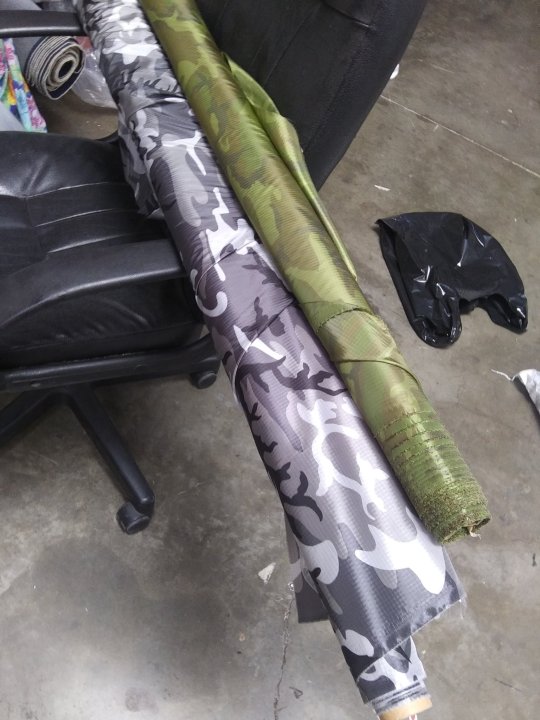



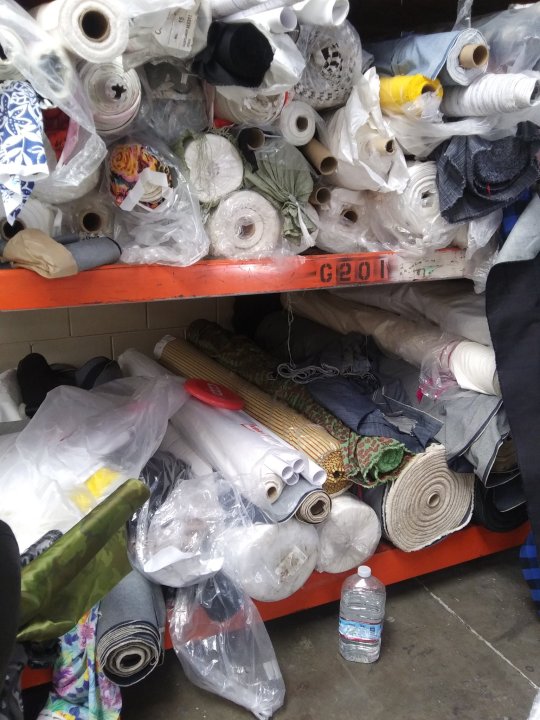



Upcycled fashion designers looking for scrapfabric and fabric bolts. Email Manuel at [email protected] must use Nelson Saidy Jr in email.
#fabric bolts#fabricbolts#scrap fabric#upcycledfashionbrands#upcyclingclothesdesigners#upcycledesigners#upcyclefashion designers#eco fashion#sustainable fashion#hunting camouflage#camouflage fabric bolts#deadstock clothes#denim bolts#denim fabric bolts
0 notes
Text
Fabrics types: a list of words
By Writerthreads on Instagram
Hopefully these descriptors can help with making your writing more detailed!
Natural Fabrics
Plant-Based
Cotton
Linen
Hemp
Jute
Bamboo
Animal-Based
Wool (e.g., Merino, Cashmere, Mohair, Alpaca)
Silk
Leather
Suede
Fur
Synthetic Fabrics
Polyester
Nylon
Acrylic
Spandex (Elastane, Lycra)
Rayon (Viscose, Modal, Lyocell)
Neoprene
Polypropylene
Knitted Fabrics
Jersey
Rib Knit
Pique Knit
Sweater Knit
Woven Fabrics
Plain Weave
Poplin
Muslin
Broadcloth
Canvas
Chambray
Twill Weave
Denim
Tweed
Herringbone
Gabardine
Satin Weave
Satin
Charmeuse
Crepe-back Satin
Luxury Fabrics
Velvet
Silk
Brocade
Damask
Organza
Taffeta
Lightweight Fabrics
Chiffon
Georgette
Organza
Voile
Tulle
Lawn
Heavyweight Fabrics
Denim
Corduroy
Canvas
Tweed
Wool
Textured Fabrics
Corduroy
Seersucker
Crêpe
Bouclé
Terrycloth
Sheer Fabrics
Chiffon
Lace
Organza
Mesh
Tulle
Durable Fabrics
Denim
Canvas
Twill
Leather
Eco-Friendly Fabrics
Organic Cotton
Hemp
Bamboo
Tencel (Lyocell)
Recycled Polyester
Some of these are duplicated, but just help with organising the fabrics depending on what you're looking for! Hope this helps!
#writing#writing inspiration#writing tips#creative writing#writers on tumblr#writing advice#teen writer#writers block#writeblr#writers
367 notes
·
View notes
Text

Modern Denim Placemats to Enhance Your Dining Experience
Transform your dining table with our modern denim placemats at Dwij Products. These stylish and durable placemats offer a chic, contemporary look that complements various table settings.
#denim placemats#denim tote bags for women#buy denim laptop bags online#Denim fanny bag#best eco friendly bags
0 notes
Text
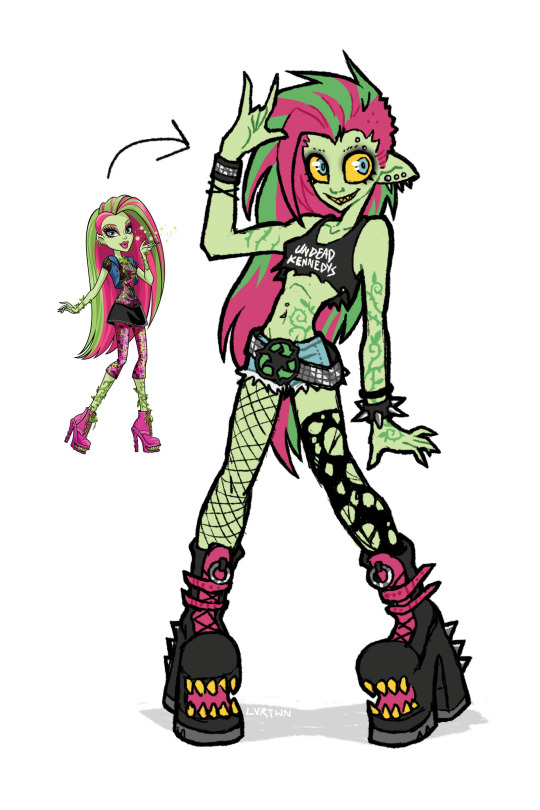
venus if she was awesome
speedpaint and more thoughts under the cut
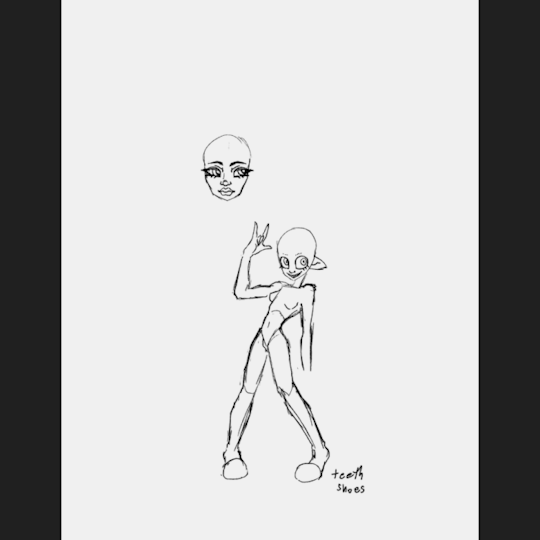
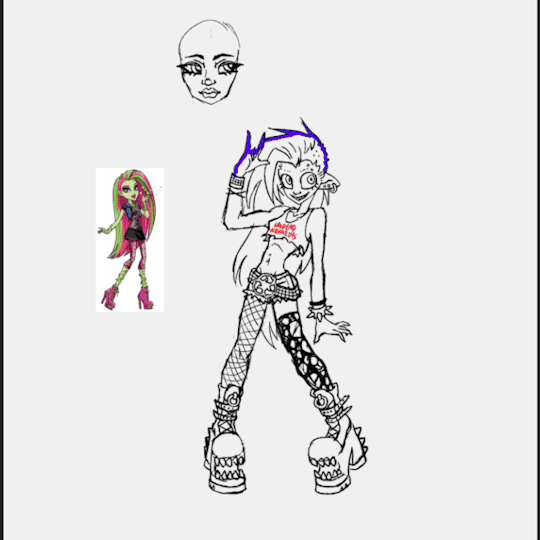
venus has always been one of my favorite characters, though i feel her design is pretty underwhelming with a lot of wasted potential. this is kind of a redesign, kind of my own personal headcannon, and kind of how i imagined venus in my head as a kid.
this is supposed to be my version of g1 venus, more similar in facial features and keeping the straight hair. i absolutely love her new hair and face in g3 but im hesitant to call the new outfit an improvement. both g1s outfit and g3s outfit are bad in their own ways. i dont want it to seem like im shitting on the new design. again i think the face sculpts, hair, and body types of g3 are so awesome. its great to see more diversity being included in the designs. i just decided to go with g1 venuses look because thats the venus i grew up with
i definitely took some inspiration from g3s outfit for this design. i like the idea of it but the execution is just not great, not to say her original outfit is any better. i feel like out of all of tge original monsters she was the one with the most waisted potential. i love her personality and the abilities she has but the way she was styled has always bothered me.
in the movies shes described as “eco-punk” which is SUCH a cool style to go with a plant monster character. i just feel like the “punk” in “eco-punk” was never really represented in her outfits. i personally love punk music and clothing; ive been an active member in my local diy scene for many years and i love seeing all the outfits people put together.
i thought i would give her an outfit that shows off a couple of my personal favorite staples of punk style. big chunky leather boots with lots of straps and buckles. kept the shoe mouths from the original because they cool as hell. lots of leather, studs, spikes. i gave her denim cutoff shorts inspired by her gen 3 outfit, same with the torn black top. punk style has a big focus on comfort, practicality, and making things yourself. i imagine she cut a pair of old pants into shorts, roughly cut her “undead kennedys”band shirt tank into a crop top, and probably repurposed the remaining fabric. i also totally didnt draw this whole thing as an excuse to use that pun. i included asymmetrical leg accessories, with one fishnet stocking and one torn up sock. i also feel like she repurposed these, continuing to wear her old torn up socks instead of just throwing them out. i gave her a big chunky studded belt matching one of her cuffs with a recycling symbol belt buckle. i feel like it communicates an important aspect of her personality just at a glance, plus i just love big belt buckles. lastly i added piercings because 1. theyre cool and 2. i for some reason remembered her having an eyebrow piercing but i guess she never had one.
i mostly kept her body and hair the same. changed her ears and hair color slightly but thats just personal preference. i decided to make the vines on her body look more like tattoos instead of being 3d. i imagine she can make them grow into real vines, but when shes not using her powers theyre just flat against her skin. gave her a facial expression that made her look a little more unhinged. she might only do things for the good of the earth but she can still mind control people at will.
i wish i leaned a little bit more into the plant theming but im overall still super happy with how this came out. maybe ill made more monster high redesigns in the future
208 notes
·
View notes
Text
Rip Nina Denim you would've loved being a plant mom
Rip Keeper Fairy you would've loved paintball fights
Rip Matthias Gellar you would've loved animal shelters
Rip Max Breaker you would've hated the cops
Rip Dylan Van Eco you would've despised Scramble
Rip Into That's you would've loved crotcheting (Idk abt this one tbh)
#Its supposed ti be the crows#but autocorrect changed their names#and iy was just so funny#Nina zenik#matthias helvar#kaz brekker#wylan van eck#jesper fahey#inej ghafa#the wraith#wylan van sunshine#wylan hendriks#the crows#six of crows duology#six of crows#crooked kingdom#soc#ck#soc ck#helnik#kanej#wesper#soc incorrect quotes#incorect six of crows#They did inej dirty
55 notes
·
View notes
Text
genpadalecki: the only thing better than finding the perfect pair of jeans? knowing they didn’t cost the planet. as the seasons shift, denim remains a forever staple, but the best blues are the ones that are made with lower water use, non-toxic dyes, and timeless designs that last. and if you can thrift or upcycle? even better.
are your jeans as green as they are blue? sharing my favorite eco-friendly denim finds in stories today!

20 notes
·
View notes